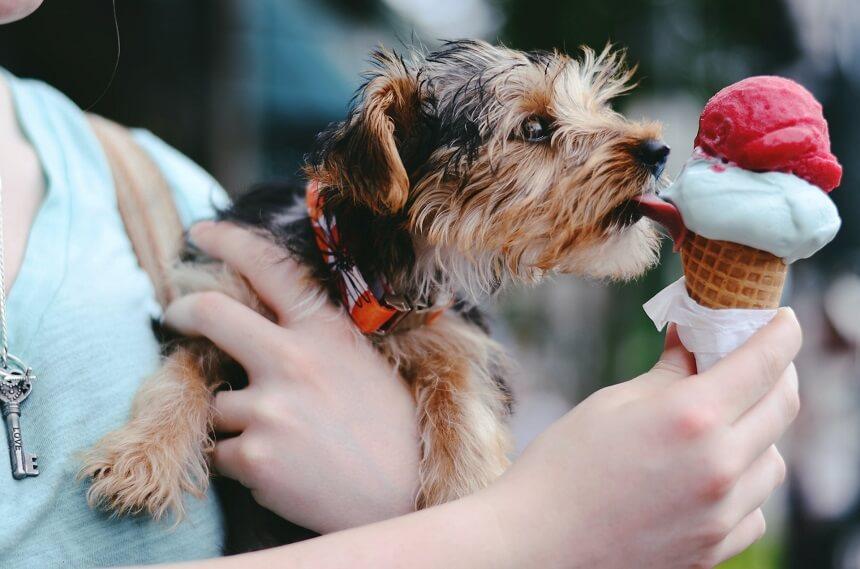Can dogs eat cream cheese? How will eating a slice of cream cheese affect your dog? Let’s discuss this topic today.
Something like cream cheese is one of the common ingredients in our lives. With the popularity of cream cheese, dogs will become more interested in it. So the question is, is cream cheese safe for dogs? If a dog in the family steals cheese, do owners need to take any measures against their dogs? Let’s address the questions that owners have because of cream and cheese.

Can Dogs Eat Cream Cheese?
Yes, although the cream cheese belongs to the high sugar and high fat, it tastes good. For example, then it is the same meaning of fried chicken relative to humans. Haha, cheese and fried chicken both provide protein. When used as a reward or to improve the meal, cream cheese can play a good effect. However, before feeding, the owner needs to test to see if their dog has a lactose intolerance problem. If not, then the dog can be allowed to eat a little.
Is Cream Cheese Bad for Dogs?
Cream cheese is not considered poisonous for dogs. Generally produced qualified cream and cheese is an edible ingredient for dogs. However, cream cheese is a dairy product. For lactose intolerant dogs, if too much cream, it is actually not much different from feeding your dog a laxative. It can cause diarrhea problems in dogs. Moreover, the cream cheese is a high-fat and high-sugar food, which is not suitable for overly obese dogs and dogs that have switched to diabetes.
What Should You Know About Cheese?
The biggest problem with cheese is that it has a huge amount of calories and salt, which is not a big problem for a dog to eat a little. Still, if eaten regularly, the dog is likely to become obese due to too many calories and a heavy burden on its kidneys and heart due to too much salt.
In addition, cheese is also a dairy product, and most adult dogs have lactose intolerance problems. It is likely that after eating cheese, the dog will become very diligent in going to the bathroom. Also, pay attention to whether your dog has any allergies due to cheese. After all, a dog’s immune system is a difficult system to understand, and they are likely to have an allergic reaction to certain foods.

Cheese is High in Fat
If your dog is overweight or needs to lose a few pounds, be sure to eliminate cheese treats. Another issue is whether your dog has a history of pancreatitis, as high-fat foods have been linked to this condition.
Cheese Can Be Very High in Salt
Some cheeses (especially hard cheeses) are very high in salt and can be dangerous and lead to sodium toxicity if your dog eats too much. Most dogs can drink enough fresh water to dilute the salt they consume, but be careful. Common signs of sodium toxicity are thirst, mental distress, vomiting, diarrhea, and loss of appetite. If your dog has any of these symptoms, take them to the veterinarian immediately. Another risk associated with high-salt foods is dogs with kidney problems.





